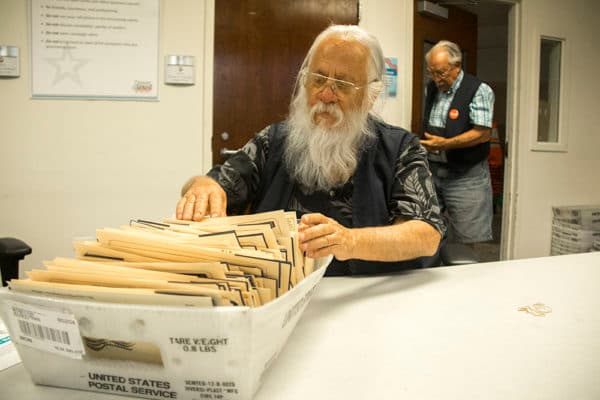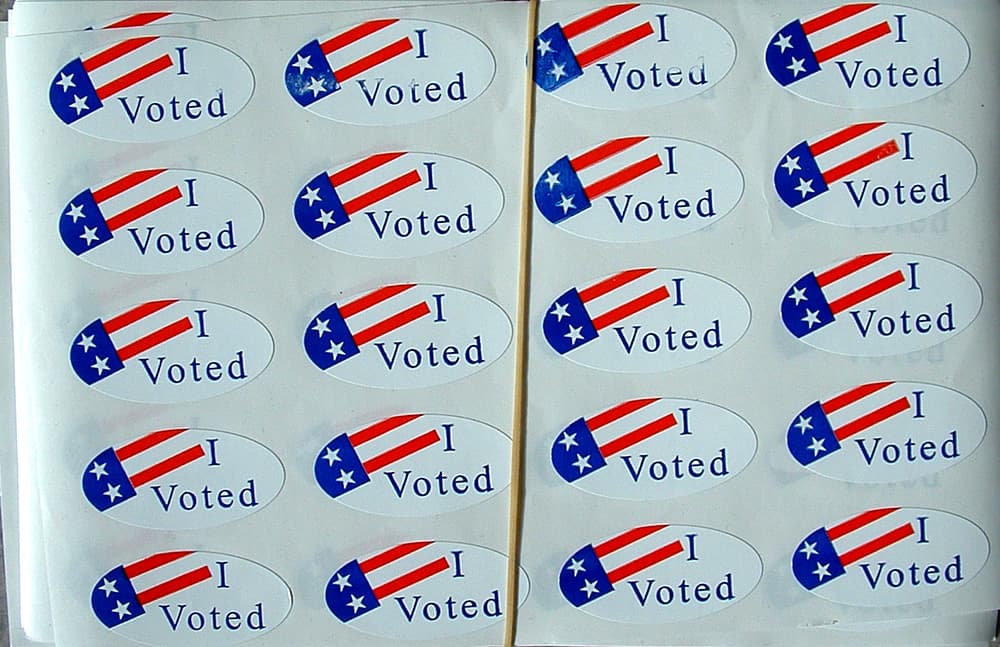
Health care. The minimum wage. Fracking. Slavery.
Voters in Colorado could see up to 11 statewide ballot measures in November, and they touch on some weighty topics. At least three constitutional amendments will be on the ballot for sure: a single-payer healthcare system submitted by voters and two measures referred by the legislature.
Supporters submitted petitions for another eight measures before Monday's deadline. The Colorado Secretary of State's Office now has 30 days to verify that the petitions meet the minimum requirement of 98,492 valid signatures. When that's all said and done, we'll know for sure what will be on the ballot.
Many of the measures have far more than the minimum requirement and are very likely to appear on ballot. Two measures that would restrict fracking are closer to the cut-off and have big money opponents. If there is a way to keep those measures off the ballot, their opponents will find it.
Here's what we got:
Definitely on the ballot:
- Amendment 69, often referred to as ColoradoCare. This amendment would create a 10 percent payroll tax, with one third paid by the employee and the rest paid by the employer, to raise $25 billion a year for a single-payer health care system. Everyone covered. No more deductibles. The main concerns are cost and the power this would give the board of trustees that administers the plan.
- Amendment T bans slavery. The Colorado constitution currently allows involuntary servitude for people convicted of a crime. This amendment would remove that exemption and prohibit all slavery for everyone.
- Amendment U would give a tax break to people who make money -- but not too much money -- from leasing government land. Those people have a "possessory interest" in real property, and this amendment would exempt them from taxes if the interest is less than $6,000. The property tax exemption would go into effect in 2018, and the amount would be adjusted for inflation moving forward.
Pending approval:
- Initiative 75 would allow local governments to restrict and even ban fracking within their jurisdictions. The question of whether local or state government has the ultimate authority to regulate oil and gas extraction has been a highly contested issue in recent years, with the courts siding with the state. This amendment would resolve that dispute in favor of local jurisdictions. Industry groups are strongly opposed, and they've raised some $15 million already to fight the measure.
- Initiative 78 would require that any oil and gas operation be at least 2,500 feet away from an occupied structure. That's nearly half a mile and would put a lot of land off-limits to fracking. Again, industry groups are strongly opposed.
- Initiative 96 would make it harder to amend the Colorado constitution. Backers of this measure think we have too many ballot measures dealing with too many issues that belong in the legislative process and not in the constitution, where it takes another constitutional amendment to make any changes. If this passes, it would take 55 percent and not a simple majority to approve a constitutional amendment -- unless it was a vote to repeal a part of the constitution. Petitions would also need signatures from at least 2 percent of the registered electors in each state Senate district, more difficult than the current standard, which is 5 percent of the people who voted for the office of Secretary of State in the last election.
- Initiative 98 would allow unaffiliated voters to vote in primary elections while the parties would still control, through caucuses and conventions, the process of selecting candidates for the primary.
- Initiative 140 would create a presidential primary to replace the party-run caucuses and allow unaffiliated voters to vote in that primary.
- Initiative 101 would raise the minimum wage in Colorado to $12 an hour over a period of four years.
- Initiative 143 would increase the state cigarette tax by $1.75 a pack from the current 84 cents a pack. It would also impose a 22 percent tax on other tobacco products. The money -- up to $315.7 million a year -- would go toward smoking prevention and cessation programs and other health care programs.
- Initiative 145 would make Colorado the sixth state where physicians can prescribe lethal doses of barbiturates to people with a terminal illness.













